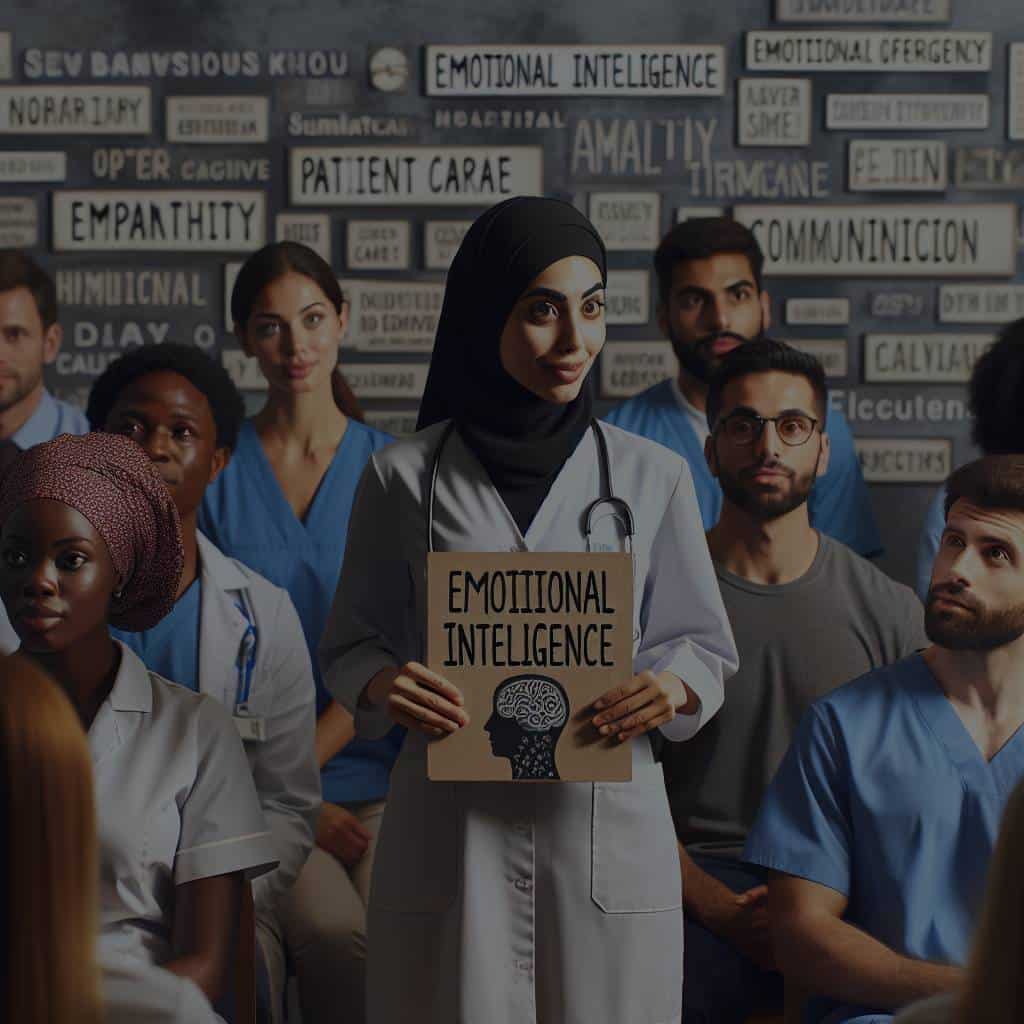How to Cultivate Emotional Intelligence in Healthcare Professionals for Better Patient Care?

In the realm of healthcare, the ability to understand and manage emotions is just as vital as medical knowledge. Both patients and healthcare professionals benefit immensely when emotional intelligence is integrated into the care process. With emotional intelligence, healthcare professionals can build stronger relationships with their patients, communicate more effectively, and manage stress better.
The Importance of Emotional Intelligence in Healthcare
The importance of emotional intelligence in healthcare cannot be overstated. As you face numerous challenges every day, the ability to understand, use, and manage your own emotions in positive ways can help you relieve stress, communicate effectively, empathize with others, overcome challenges, and defuse conflict.
Cela peut vous intéresser : What Nutritional Interventions Are Effective for Managing Inflammatory Bowel Disease?
By definition, emotional intelligence refers to the ability to identify and manage one’s own emotions, as well as the emotions of others. When applied in a healthcare context, it could mean understanding the emotions of a patient or their family members, empathizing with their situation, and using that understanding to provide the best possible care.
A significant body of research indicates that healthcare professionals with high emotional intelligence are better at managing stress, showing empathy, and providing high-quality patient care. A scholar from Google health, for example, found that physicians with higher emotional intelligence had more satisfied patients, fewer malpractice claims, and better patient outcomes.
Avez-vous vu cela : Can Homeopathy Effectively Treat Eczema Symptoms?
Enhancing Emotional Intelligence Among Medical Professionals
To improve patient care, healthcare institutions must make a concerted effort to enhance the emotional intelligence of their professionals. This involves creating a supportive environment that encourages open communication, empathy, and emotional awareness.
You can start by encouraging self-awareness among your healthcare professionals. Self-awareness, the first component of emotional intelligence, involves recognizing one’s emotions and how they affect one’s thoughts and behavior. By understanding the emotions that arise during patient interactions, healthcare professionals can better manage their reactions and provide more empathetic care.
Furthermore, you can encourage professionals to practice empathy. As healthcare professionals, you often have to deliver bad news or deal with emotionally-charged situations. By empathizing with patients, you can better understand their feelings and respond appropriately.
Training and Education on Emotional Intelligence
A critical part of cultivating emotional intelligence in healthcare professionals is through training and education. This involves integrating emotional intelligence into medical education and providing ongoing training for all healthcare professionals.
Incorporating emotional intelligence into medical education can be as simple as discussing the concept in lectures or as complex as including it in patient simulations. The goal is to provide students with a solid understanding of emotional intelligence and its implications for patient care.
For practicing healthcare professionals, ongoing training can help reinforce the concepts of emotional intelligence and provide opportunities to practice these skills. These training programs can be offered in various formats, including workshops, seminars, and online courses.
Using Technology to Foster Emotional Intelligence
Embracing technology can also help foster emotional intelligence among healthcare professionals. For example, some leading institutions are using virtual reality (VR) technology to help medical professionals better understand and manage their emotions.
These VR programs put healthcare professionals in a variety of challenging scenarios and provide real-time feedback on their emotional responses. This allows professionals to practice managing their emotions in a safe environment, which can translate into better patient care in real-world settings.
Leadership’s Role in Promoting Emotional Intelligence
Leadership plays a crucial role in promoting emotional intelligence in healthcare. Leaders set the tone for the entire organization, and their attitudes and behaviors can significantly impact the emotional intelligence of their teams.
Leaders who demonstrate high levels of emotional intelligence can foster a work environment that encourages open communication, empathy, and emotional awareness. They can also provide the necessary support and resources for emotional intelligence training and education.
In conclusion, cultivating emotional intelligence in healthcare professionals is a vital part of providing high-quality patient care. By understanding and managing their emotions, healthcare professionals can build stronger relationships with their patients, communicate more effectively, and manage stress better. Therefore, healthcare institutions must take active steps to enhance the emotional intelligence of their professionals, through training, education, supportive workplace culture, and leadership.
The Power of Emotional Intelligence in Decision Making
In the realm of healthcare, decision making is a critical aspect that can significantly impact the patient outcomes. Emotional intelligence plays a crucial role in this process. Healthcare professionals who possess high emotional intelligence have a better understanding of their own emotions and those of others. This insightful understanding aids them in making more patient-centred decisions leading to higher patient satisfaction.
A study from Google Scholar corroborates the profound impact of emotional intelligence on decision making in healthcare. The research postulates that emotionally intelligent healthcare providers are more adept at judging the severity of the patient’s situation and deciding the most suitable course of action. They are also more effective in managing emotions during challenging situations, which prevents the clouding of judgment and facilitates clear, focused decisions.
The ability of healthcare professionals to manage their emotions in high-stress situations can lead to more calm and rational decision making. They can effectively understand the emotional state of the patient, empathize with them, and respond in a manner that not only provides the necessary medical care but also emotional support. This supportive and empathetic approach can significantly enhance the patient care experience leading to improved patient outcomes.
Emotional Intelligence and Teamwork in Healthcare
Teamwork is a critical element in healthcare, and emotional intelligence serves as a backbone to this aspect. Emotionally intelligent healthcare professionals are likely to foster a more collaborative and conducive work environment. They exhibit behaviours that encourage mutual respect, understanding, and support among team members.
In a PubMed Google study on the impact of emotional intelligence on teamwork in healthcare, it was found that teams with high emotional intelligence were more effective in their roles. They exhibited less conflict, better communication, and higher morale. These teams were also more resilient in the face of challenges, showing a remarkable ability to bounce back from setbacks and maintain high performance levels.
Leadership within these teams also plays a key role. Emotionally intelligent leaders are more capable of managing team dynamics, addressing conflicts, and guiding the team towards achieving patient care goals. They celebrate the team’s successes, support them through challenges, and foster a work environment that values emotional intelligence.
To conclude, emotional intelligence in healthcare is not a dispensable luxury, but a necessity. It significantly contributes to various aspects of the healthcare process, from decision making and patient care to teamwork. Cultivating emotional intelligence in healthcare professionals requires concerted efforts from healthcare institutions, from integrating it into educational curricula to promoting a supportive work environment and leadership. With these measures in place, healthcare providers will be better equipped to deliver high-quality, emotionally intelligent patient care.
